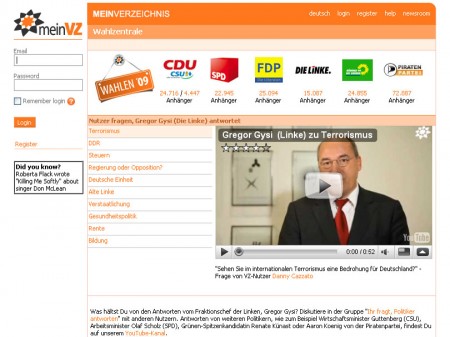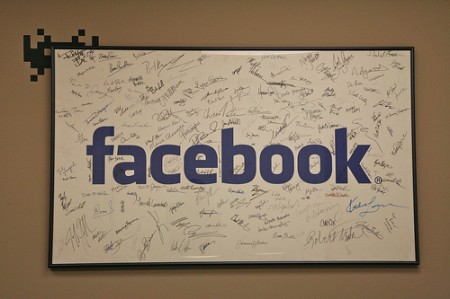Only three days left for 62.2 million eligible Germans to vote to elect a new parliament which, many fear, is likely to result in more of the same, a CDU-led grand coalition government together with the SPD. Out of those 62.2 million, about 3.5 million voters will cast their ballot for the very first time, with around 2.8 million of them members of one of Germany’s leading social networking forums: StudiVZ, SchülerVZ and meinVZ.
Given the dramatic twist of 2002’s German general election when the SPD won with a mere advance of 6.027 votes compared to the CDU/CSU, the attitudes of some millions of voters illustrate that in a democracy every vote counts.
So how to best trace the hard-to-predict political attitudes of young voters? Right, start a massive crossmedia offensive with social networks, public television stations, newspapers, Twitter and YouTube working hand-in-hand to provide a platform with the hardly web 2.0-compatible name of “Erst fragen, dann wählen” (= ask first, then vote).
Fine, let us “ask first” then…



